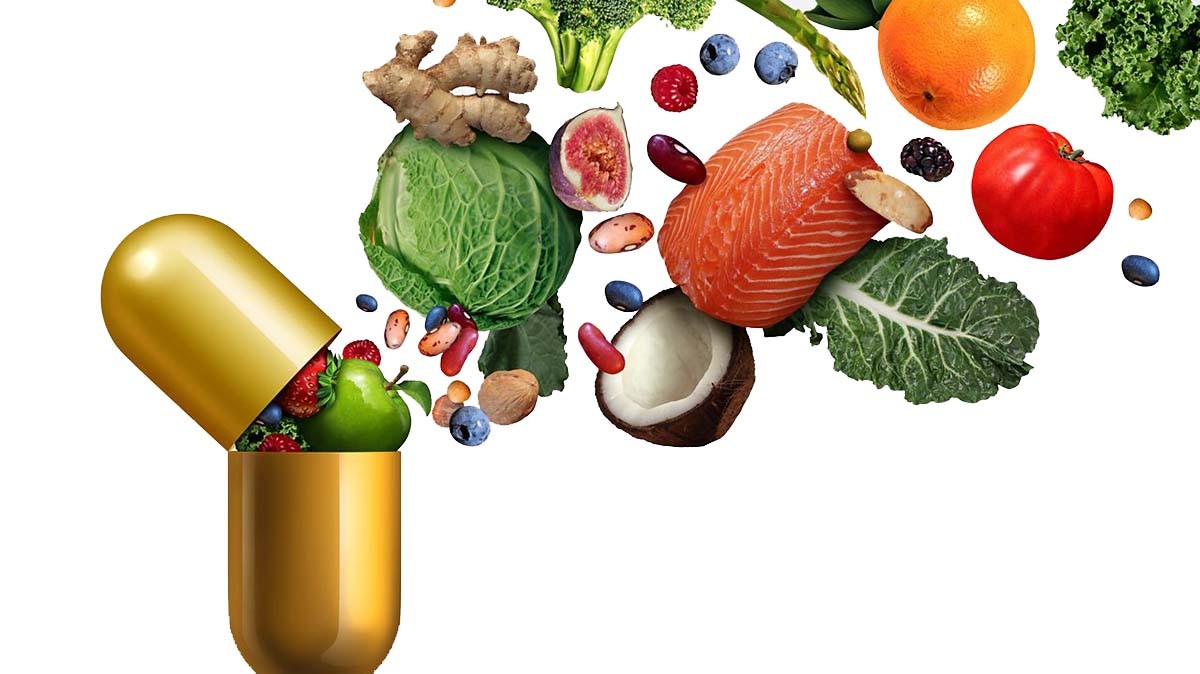What are 4 misconceptions about Nutrition ?
There are many ways people perceive nutrition. From eating for pleasure because is cool, to eating too much , or eating junk food because is cheap, or eating whatever because I'm telling nobody.
Regardless of the mood , habit, religion and faith, our body-mind complex needs certain nutrients to work properly, and the physiology of nutrition stay the same for everyone.So let's have a look at 4 common misconceptions about nutrition:
1. You must take supplements every day.
2. To lose weight you must exercise
3. Carbs and Fats makes you fat
4. A diet will save me
1. This sounds more like a commercial ads rather than a healthy practice. As long as we think that a pill will save us (either natural or synthetic), we're creating a dependency that will hinder our natural capability to self-heal. Sure, food itself is a dependency, but why unnecessarily adding more on top of it?
From a safety point of view, both synthetic drugs and dietary supplements could be unsafe, with the added risk that a synthetic drug could be more dangerous to health, especially in the long term. For example, Nature published a study about the content of toxic (heavy) metals found in many dietary supplements. [3] [2]
Decades ago (synthetic) antibiotics were considered a 'miracle', until WHO (World Health Org.) declared antibiotic resistance as one of the top global threats. [1] Plus, Addiction to painkillers and to psychotropic drugs have become a global issue. [4][5]
2. Of course exercise is in general a good practice, but if we're overweight it can backfire. Imagine you're running with 10kg backpack on your shoulders. That will demand more energy from your muscles, which in turn will ask for more blood supply and oxygen. Eventually the extra load is put on your heart.
Moreover, people think "if I run, I burn more fats". The short answer is yes if we allow our body to switch to lipid-metabolism [6]. But when we run, the immediate energy comes from breathing, and from Glycogen (stored in Liver and Muscles). When the reserve of Glycogen is over, we feel exhausted since our body doesn't have enough time to switch to lipid-metabolism.
So the 'Eat less, Move more' is closer to what we need, providing we stay away from junk food, and we exercise without straining our body.
Now look at this: Where our fat goes when we lose it?
Most MDs and NDs seems to struggle while answering this question.
Fat is made by: H,C, and O atoms (Hydrogen, Carbon and Oxygen), and Glucose is made by the same atoms, just combined (bound) in a different way.
For example, glucose is: C6-H12-O6, and Stearic acid , a saturated fatty acid is: C17-H35-CO2H.
Stoichiometry, or the law of conservation of mass, says that any chemical reaction has to balance. So if F is the mass of excess-fat that is in our body, if we want to lose weight that mass has to leave the body.
But as we sweat during exercise, that sweat is mostly water (Hydrogen, and Oxygen), so how do we lose C from our body?
Do you remeber CO2 (Carbon dioxide)? Yes, Carbon goes with that. As we exhale CO2 from our lungs, C leaves our body. So while we exercise we eliminate water, CO2, and energy (as heat and work according to Thermodynamics). That's where fat goes as we lose it.
3. Whatever we eat and digest eventually become glucose (sugar). Sure, Carbs and Fat (eg. Oil, Butter) can be fattening, but the point is to limit 'bad' fats (saturated, and trans-fats) , and instead prefer 'good' fats (unsaturated), and carbs. For example, people link carbs to pasta, bread and rice. But all vegetables are carbs, and their vitamins , minerals and fibers are required for a balanced nutrition.
Wheat is not our enemy, if it's whole and not processed.
Moreover 99% of junk food is carbs with hi-content of sugar. You'll be impressed to know how much sugar or 'bad' fats could hide in your 'healthy' food, including drinks.
4. Quite often we're tempted to achieve fast results, and since we're obsessed with time
a diet seems to fit well in that pattern.
We get rid of excess fat, we look good , and we carry on.
But we may have few issues with that approach.
As we lose fat, we can always gain it back. Especially after a diet is over, we're tempted to get back to our habits, and getting back our old good weight is quite common, and frustrating for some.
Some 'gurus' claim their diet will put you back in shape while you can continue to eat as you like. Others propose diets with low carbs in favor of proteins because carbs are bad. While in theory all diets could have some interesting elements, what works for some, may not work for you. So my suggestion is to stick to the basics, and try not to sabotage yourself with 'miracle' diets.
For example, Pierre Dukan (MD) who claimed his diet was effective against obesity, was banned from practicing as a GP in France, and his diet is banned in UK [7]
To implement a balanced nutrition (not a diet) it requires motivation, that's why we suggest our patients to get familiar with some psychology if they're serious about health. Nutrition implies Lifestyle and Psychology, and we believe these 3 (NLP) should always go together. [8]
Looking good is not always a synonymous of health.
Having 6-pack abs or nice curves doesn't say much about our immune system, which ultimately protect us from diseases.
For example, Ahmad (a body-builder) was hit pretty bad from COVID, wherea a 106 old woman fully recovered after only 3 weeks. Our culture of muscles and curves need probably to re-align to the basics of health.
[1] https://www.who.int/news-room/fact-sheets/detail/antibiotic-resistance
[2] https://www.health.harvard.edu/heart-health/dietary-supplements-dubious-value-hidden-dangers
[3] https://www.nature.com/articles/s41598-020-76000-w
[4] https://www.health.harvard.edu/newsletter_article/painkillers-fuel-growth-in-drug-addiction
[5] https://www.ncbi.nlm.nih.gov/pmc/articles/PMC3145318/
[6] https://en.wikipedia.org/wiki/Lipid_metabolism
[7] https://en.wikipedia.org/wiki/Dukan_Diet
[8] https://www.fempton.com/uxton/explore/textbooks

